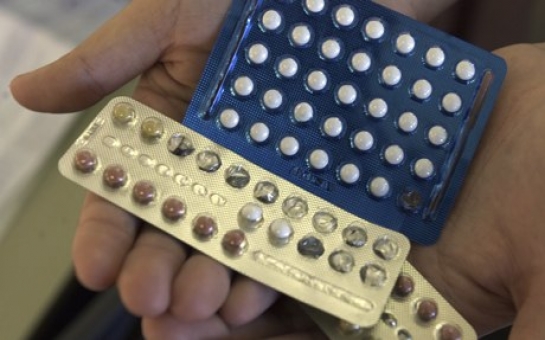Advocates of reform, inside parliament and beyond, vowed to continue the fight. So they must. Last summer it emerged that dozens of schools continue to use materials drawn up in the homophobic era of Section 28. Provision elsewhere is patchy, and subject to the whims or religious convictions of school management or governors. A survey published this month by the Sex Education Forum found that 27% of young people rated their SRE as bad or very bad. Meanwhile, curious and horny teenagers are a click away from the internet's infinite orgiastic banquet, and innovations in communications technology promise endless new opportunities to be exploited – in every sense. Educators simply must keep up.In one crucial respect I hope the next phase of the campaign can move on. The recent political and media narrative has focused on one very specific angle. The Times put it thus: "Boys need to be taught how to treat girls." In the Guardian, Rhiannon Lucy Cosslett recounted a litany of abusive, occasionally bizarre sexual practices supposedly being inflicted by porn-obsessed teenage boys. And Labour MPs Yvette Cooper, Diana Johnson and Helen Jones framed the issue solely in terms of male violence against women.In truth, the evidence for an upsurge in relationship violence and sexual violence between young people is anecdotal at most. Yes, young people are at high risk, but they always have been. Johnson and Jones, in their Huffington Post piece, fell back on research by the children's commissioner into girls' experiences with violent street gangs, which is horrifying in its own terms but says nothing about the lives of the vast majority of teenagers. It is one example of how ordinary young people's lives are typically viewed through a filter of the sensational and extreme.My oldest son, now approaching 12, is at the start of the difficult trip through adolescence. I have many friends with boys a little older, and meet other young men in my community. I simply do not recognise the dominant media narrative in the young men I know. They are not sex-crazed monsters, treating girls as meat before casting them aside and moving on to the next one.What I do see is teenagers much as they ever were – gauche and gawky, awkward and insecure, hormonal, hyper and sulky. They are sometimes inspirationally brilliant and funny, sometimes stupid and self-destructive, and occasionally frighteningly aggressive.I see young men desperately looking around and soaking up messages and cultural models for how to behave as a "real" man, many of which are downright toxic. It concerns me deeply that the political narrative that portrays young men as sexually aggressive, abusive and violent can easily become part of the problem. Young men who are at heart compassionate, gentle and kind cannot be well-supported by being constantly told they are the exceptions, when they are very much the rule.There is no evidence that internet pornography is driving a wave of teenage violence and abuse, but it would be foolish to imagine that it is not influencing sexual norms and expectations. Young people have to learn that in the real world not every sexual encounter lasts exactly 30 minutes, not everyone enjoys every sexual practice, most erections are not the size of a cucumber, and most plumbers don't arrive within 90 seconds of a call.Boys and girls alike face a stressful journey through puberty and adolescence, and that includes navigating the risks of potentially violent or abusive partners. It is not an issue we can hide from or wish away, but nor is it the only issue. What has been missing from the recent debate is any sense that boys have their own issues requiring not just sympathy but attention, as an end in itself. They can be victims of exploitation and abuse. Young men have always worried about their sexual potency, prowess and attractiveness, their isolation and loneliness. Who is stopping to ask what impact ubiquitous internet porn is having on boys' own sexual insecurities and anxieties? Where do boys turn for emotional support, advice, guidance and reassurance? Certainly not to their mates, because the viciously policed norms of masculinity insist that we must never show weakness, vulnerability or fallibility.In their advice to educators, the Sex Education Forum notes that boys have particular difficulties in admitting embarrassment or lack of knowledge, expertise and experience. They will often become disruptive and snigger rather than ask the questions they desperately want answered. And yet when surveyed, the same high proportion of boys and girls admit to being uninformed about crucial issues such as negotiating consent and happy relationships.Teenage boys communicate almost entirely in braggadocio and bullshit. To do otherwise is to expose oneself to emasculating ridicule. It should be no surprise that a 2009 report by ChildLine noted that boys were more likely than girls to call about being sexually abused; nearly twice as likely to call asking about "the facts of life"; and six times as likely to call with worries about their sexuality. Where else can they turn when their schools are failing them?Yes, children need proper sex and relationships education that acknowledges and reflects their world. Yes, let's teach children about enthusiastic consent, about mutual pleasure, about the true spectrum of sexualities and sexual pleasures in all their exciting, passionate, awkward, embarrassing, funny and often elusive glory. Let's start from the basis that all young people deserve empathy, support and education – not because they can cause pain and hurt, but because they can feel pain and hurt.(theguardian.com)ANN.Az
Don't treat young men like sex-crazed monsters
Society
10:30 | 31.01.2014

Don't treat young men like sex-crazed monsters
Shortly before 8pm on Tuesday, in one of those bumbling, bureaucratic anticlimaxes that are a trademark of the upper house, the Lords dashed hopes for reform of sex and relationships education (SRE) in English schools. Proposed amendments to the children and families bill would have mandated a working party to modernise guidelines on SRE in the age of digital technology, and ensured that all state-funded schools, including academies and free schools, are obliged to teach SRE.
Follow us !










